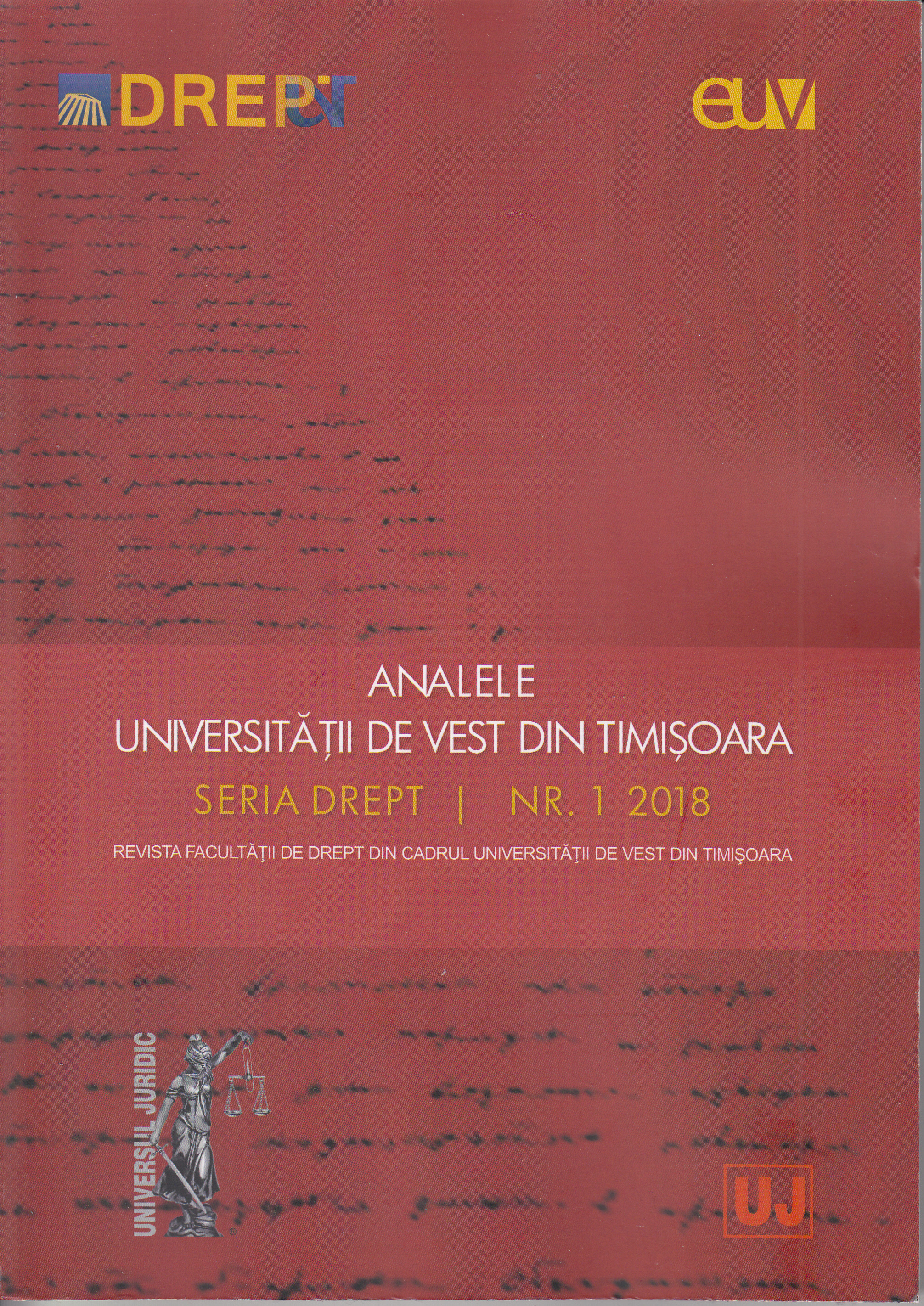Privire actualã asupra condițiilor și particularitãților rãspunderii civile delictuale pentru fapta minorului
sau a celui pus sub interdicție judecãtoreascã
în lumina noului Cod civil
Current View on the Conditions and Specific Aspects of the Civil Liability for the Tort of the Minor or the of the Incapacitated Person in the Light of the New Civil Code
Author(s): Alina Doina TanaseSubject(s): Law, Constitution, Jurisprudence
Published by: Universul Juridic
Keywords: tort law; parental authority; supervision authority; incapacitated person; minor, damage
Summary/Abstract: The institution of civil liability for the wrongful act of the minor or of the incapacitated person is one of the most spectacular innovations brought by the new Civil Code, and has generated numerous debates and controversies both inthe tort law doctrine and in case-law.In this paper, we intend to carry out a complex analysis of the legal provisions in force governing this legal institution, referring in particular to the legal regime of the general and special conditions having to be met in order to entail this form of civil vicarious liability.Careful consideration of the provisions of art. 1372 of the Civil code reveals the general and special conditions required for this type of liability, some of which are quite similar to those from the old regulations.Thus, there are three general conditions which entail the civil liability for thetort of the minor or of the incapacitated person, namely: the damage caused to a third person, the wrongful act committed by the minor or the incapacitated person, and the causal relationship between the wrongful act and the damage.The general condition relating to the guilt of thewrongful act’s author has been the subject of many doctrinal controversies, the legislator of the new Civil Code therefore leaving aside such provision. In this way, the objective basis underlying this form of liability has been shaped, emphasising its aim, which is to ensure an effective and increased protection of the injured person's interests.Besides the general conditions, this type of liability can be entailed only if two other special conditions are met, which aregrafted on the general ones: the minority or, as the case may be, the legal status of incapacitated person, of the wrongful act’s author and the existence an obligation to supervise them, incumbent upon their parents or legal guardians.As for the special condition of the housing community, stipulated by art. 1000 s. (2) of the 1864 Civil Code, the legislator of the new Civil Code did not maintain it in the current provisions, considering it ineffective in the context of strengthening the objective nature of the parents’liability for the torts of their children.
Journal: Analele Universității de Vest din Timișoara - Seria Drept
- Issue Year: 2018
- Issue No: 1
- Page Range: 113-129
- Page Count: 17
- Language: Romanian

